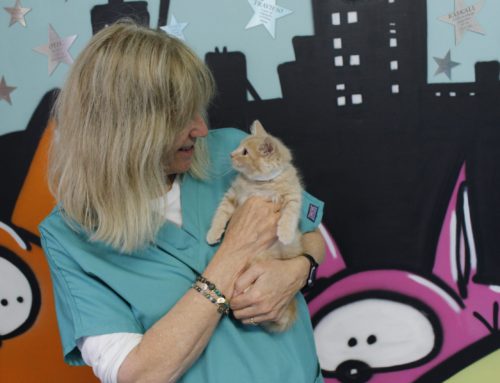Skip to content
Home/Q&A with FixNation’s volunteer cat behaviorist, Mirian Hasani
Q&A with FixNation’s volunteer cat behaviorist, Mirian Hasani

- How did you get involved in animal behavior and pet psychology?
First and foremost, I am fascinated by cats and what they do and I have a deep connection with them. The real reason, though, is a sad one. Over the years, as I’ve transported cats to and from local shelters and sanctuaries, I’ve encountered many cats that have been “surrendered” by their guardians. It is the saddest thing. Pet cats know they are being separated from the home and family that they love, and some cry all the way to the destination.Some reasons to surrender cats are totally justified, such as a guardian’s death. But in many cases it’s simply because the cat is engaged in a totally natural feline behavior that the guardian either doesn’t understand or doesn’t know how to handle properly. Some of these behaviors include spraying, cat-to-cat aggression, cat-to-human aggression etc. That’s the reason I got my degree, to be able to keep as many cats in their homes and to help others find their furrever home.
- Can you share some success stories about FixNation’s Cat-A-Van cats, which you help prepare for relocation and ultimately adoption?
I believe that 99% of the cats I’ve worked with at the FixNation clinic have been happily adopted and are now part of wonderful families. The majority of these cats have been through some tough times. They might have been separated early in life from their mother or abused, abandoned or neglected by guardians who should be there to protect them. Others have been surrendered because of hardship and many have been injured in one way or another. No wonder most of the cats FixNation rescues from local shelters are terrified and display a “don’t come near me” attitude. Some of these kitties are deeply depressed and no longer want to eat or play. However, once they realize that we love them and are there to help, they show all the love they have in their soul.
- What are some common misconceptions about “misbehaving” cats?
People tend to anthropomorphize their pets. They think that if the cat is spraying it must be evil or is mad at them and seeking to “get even.” Not at all. Spraying is a perfectly natural behavior for both wild and domestic cats. Also, some people think that female cats don’t spray, only the males—not true! Shredding furniture is another common problem that is, again, a totally natural behavior. When I write my Behavioral Reports, I not only provide the necessary steps to get rid of an undesirable behavior, I also help the guardian they better understand why it’s happening. Once they understand, they’re more patient and more willing to work with the cat to modify the behavior.
- What do you find most rewarding about your work?
Everything! It’s rewarding when I come to the FixNation clinic and they have a kitty that’s been hissing and growling and spitting, and after a few hours of working closely with that cat, he’s licking my hand and wanting me to rub his belly. It’s rewarding when I receive an email from a guardian saying that for the first time in ages, their cat isn’t spraying or biting anyone, and I know that cat is no longer is danger of losing its family and its home. It’s rewarding to see the gradual change in a cat’s eyes and face, going from extreme fear to being relaxed and happy. Seeing trust gradually develop, along with a newfound willingness to love and to be loved. Seeing a cat overcome its fear and realize that it’s okay to play, that no harm will come to them. To witness something like that, there’s simply no better feeling in the world.
Share This Story, Choose Your Platform!






